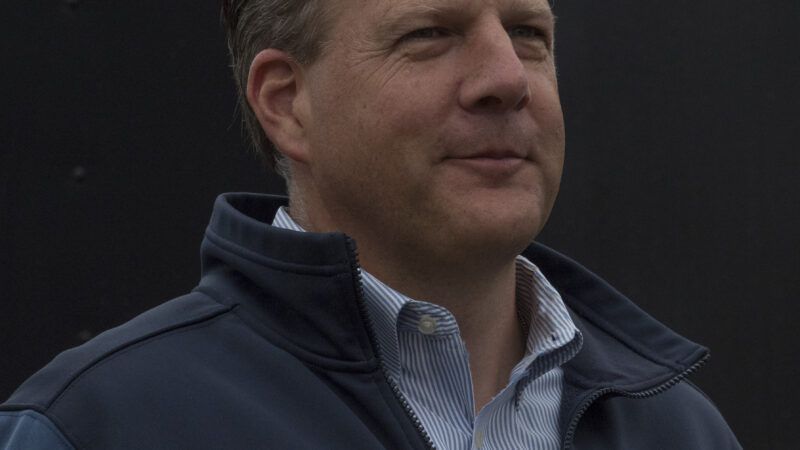New Hampshire Gov. Sununu Just Announced a Massive Occupational Licensing Reform
In a budget address, Gov. Sununu promised legislation to allow some out-of-state licenses, abolish others.

For years, New Hampshire has been luring new residents with the promise of low taxes and a generally libertarian ethos. Soon, migrants to the state will be spared a significant relocation headache: getting permission from the government to do the same job you did somewhere else.
New Hampshire Gov. Chris Sununu, a Republican, launched a bold occupational licensing reform effort during his annual budget address on Tuesday by promising to sign legislation that broadly recognizes occupational licenses issued by other states.
"If you have a substantially similar license and are in good standing in another state, there's no reason you shouldn't have a license on day one in New Hampshire," Sununu said. "We are committed to breaking down regulatory barriers, lowering the cost of entry to do business here, increasing free-market competition."
Additionally, Sununu called for the outright elimination of 34 licenses currently issued by various boards, as well as the elimination of 14 state regulatory boards. He also pointed out that many licensing schemes make little logical sense—and generally have more to do with political power than consumer safety.
"The state doesn't license the contractor who frames your house, but for some reason we license the person who plants a rosebush in your front yard," Sununu said. "Not anymore."
Budget addresses, like the presidential State of the Union address, are more about outlining broad policy goals than getting into the nitty-gritty of legislation. Brandon Pratt, Sununu's communications director, tells Reason that the exact details of the licensure reforms will be laid out in H.B. 2, which should be made public within the coming weeks.
If they live up to what Sununu promised in the budget address, New Hampshire could lay claim to having one of the least restrictive licensing regimes in the country. Nineteen states have enacted some form of universal licensing recognition, though the specifics vary to some extent. But the trend is clearly towards wider recognition. This year, Ohio Gov. Mike DeWine and Nevada Gov. Joe Lombardo (both Republicans) signed major licensing reforms that included easing the rules for out-of-state licensees to qualify for licenses in their states.
"Occupational licensing laws are exacerbating New Hampshire's dire shortage of available workers," says Meagan Forbes, director of legislation at the Institute for Justice, a nonprofit law firm that has challenged unfair licensing laws and advocates for reforms. "It is good that Gov. Sununu called for recognition of other states' licenses but, more importantly, will be his leadership to repeal the state's unnecessary occupational licenses and to reduce licensing burdens."
That represents a potentially huge change for the state, which currently ranks in the bottom half of all states for its licensing burden, according to a recent IJ report.
Sununu's proposal is certain to face some opposition in the legislature—anti-competitive rules always have political support from the constituencies that benefit from protectionism—and it's too soon to judge the results. Even so, he deserves credit for aiming to increase the number of New Hampshire's residents who can "live free" without having to get a permission slip from the state.

Show Comments (16)